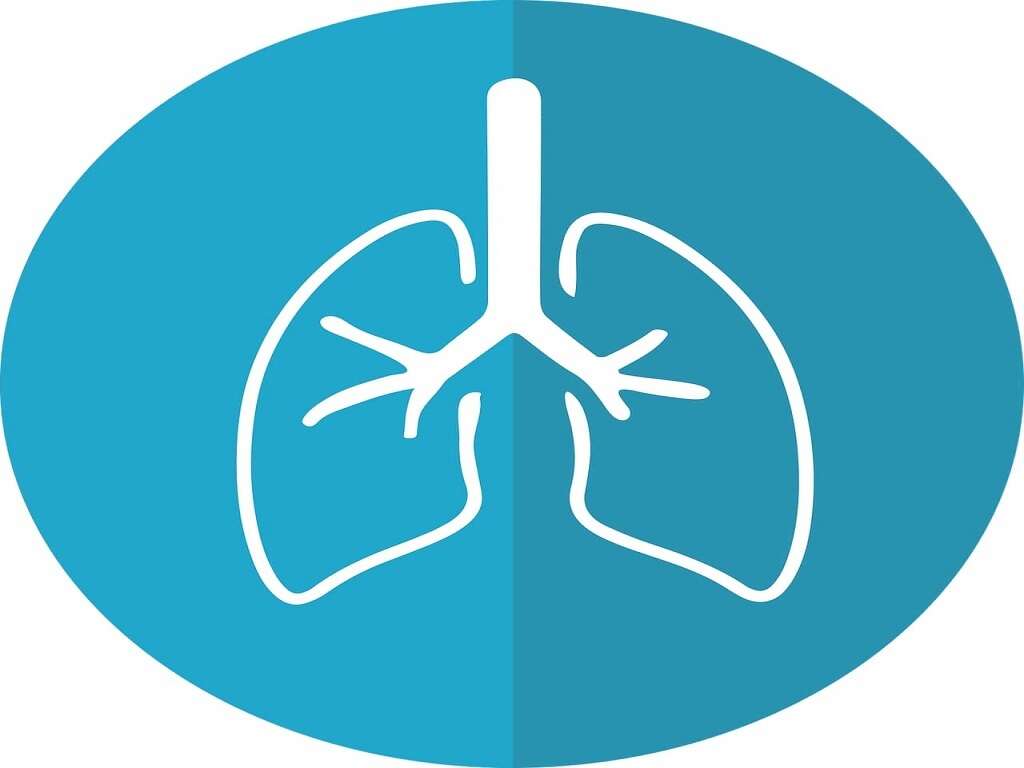10 Signs of Pneumonia
Pneumonia is a potentially serious infection of the lungs. It directly affects the alveoli, which are air sacs that help absorb oxygen. As the infection develops, these sacs can become filled with pus which causes a wide range of problems, including difficulty breathing.
Causes of pneumonia vary, the culprit often being bacteria, fungi, and viruses. Pneumonia is treatable with antibiotics that are appropriate to the specific type of infection. It can be very serious, however, with the very young and old being particularly at risk.
If you do suspect pneumonia, you should get the patient to a hospital as soon as possible so they can get the treatment that they need. Not doing so could have a fatal outcome.
Pneumonia Sign #1: Dry Cough
A cough is quite common and doesn’t usually cause concern. For this reason, it may get overlooked and passed off as something non-threatening. This is usually the case—but not always. Sometimes, a cough can be a sign of something very serious.
One common symptom of pneumonia is a dry, hacking cough that turns up phlegm and can also be painful. If any cough persists, you should arrange to speak with a doctor no matter what you may think is causing it.
Pneumonia Sign #2: Chest Pain When Coughing
Breathing is effortless, and so it should be, considering we have to do it all day, every day. It is something that we tend to take for granted, and if it suddenly becomes difficult, we are bound to notice. Develop pneumonia and you are likely to find that breathing is no longer as easy as it used to be.
Pneumonia can cause considerable pain in the chest area, especially as it makes you cough day and night. In some cases, even just breathing can be painful for you. Any chest pain should be enough to encourage you to speak to a doctor.

Pneumonia Sign #3: Headache
Headaches are so common that we would not usually think of seeing a doctor should we develop one. This makes them a symptom that often goes overlooked, and we just try to carry on regardless. Sometimes, though, headaches can be the sign of something quite serious.
One common symptom of pneumonia is a headache that can range in severity from something that barely gets noticed, to pain that leaves you writhing in agony. If you do have a headache that is persistent or particularly painful, you should arrange to speak with a doctor to find out what’s causing it.
Pneumonia Sign #4: Nausea
Nausea is another symptom that can come from a huge range of causes. It is often down to something quite harmless, such as unpleasant odors or tastes. Sometimes, though, it can be a sign that you are ill and in need of professional medical attention.
Nausea is also a common symptom of pneumonia that also has the positive effect of encouraging the affected person to arrange to speak with a doctor. This helps make sure they get treated for their illness as soon as possible. Nausea is often accompanied by diarrhea and vomiting.

Pneumonia Sign #5: Shortness of Breath
We rely on our lungs to be able to breathe. They inhale and exhale air as they inflate and deflate, and their linings have evolved to help us absorb as much oxygen into our blood as possible. These linings contain countless tiny air sacs that help increase the surface area to maximize oxygen absorption.
Pneumonia affects these air sacs directly, hindering their ability to absorb oxygen from the air we breathe. This means that patients with pneumonia can find it much harder to breathe than usual. You should treat unexplained shortness of breath as an emergency regardless of the suspected cause.
Pneumonia Sign #6: Low Body Temperature
We are warm-blooded creatures, which means that we are able to generate our own body heat. This ability comes from metabolizing the food that we eat, and it helps us to keep our body temperature above a certain level. If our body temperature drops though, this is a sign that there could be something seriously wrong.
A low body temperature is not a common symptom of pneumonia. Indeed, most people are likely to experience a fever instead. However, it is a very serious symptom that should be treated as a medical emergency. It is most common in people that are particularly vulnerable.

Pneumonia Sign #7: Fever
Pneumonia is an infection of the lungs, and our bodies have their own natural defenses against infections. One such defense is to make the body an inhospitable place to the responsible pathogen, and the common response is raising the body’s temperature, also known as fever.
A fever is not usually something to be concerned about in itself, but if it is too high, it can endanger the body. The patient should be observed and given medication to cool the fever if necessary. If it does get dangerously high, emergency medical assistance may be necessary.
Pneumonia Sign #8: Fatigue
Sometimes, our bodies can be hard at work beneath the surface, even when we are otherwise inactive. In the case of severe infection, our bodies will be spending a lot of energy on trying to deal with the problem, leaving us feeling tired. This fatigue will endure for as long as we are ill, and no matter how much rest we might get.
During this time or fatigue and in addition to the other symptoms they will be experiencing, the patient will not feel like doing anything. The patient will be needing plenty of rest anyway as their body fights against the infection. Fatigue can linger once pneumonia has been cured, but it will pass altogether before long.

Pneumonia Sign #9: Aches and Pains
In the early stages, pneumonia is often mistaken for a cold. As the infection develops and the symptoms worsen, it is often mistaken for a bad case of the flu. This means that it is not usually diagnosed as quickly as it could be. Pneumonia causes various symptoms that are similar to the flu, including aches and pains.
Such aches and pains are a result of the body doing what it can to fight against the infection. It might be uncomfortable for the time being, but it is an important process in protecting the body against disease. The symptoms will pass once the infection has been successfully treated.
Pneumonia Sign #10: Confusion
One of the signs that a patient is suffering from advanced pneumonia is confusion. They can lack awareness of what is happening around them and even who is talking to them. This is a sign that they need urgent medical assistance.
Confusion is most likely to occur in aging people that are 65 years and above. If you have not done so already, it is time to get them to an emergency room as soon as you possibly can. Pneumonia can be fatal, so it should never be taken lightly regardless of the patient’s overall physical health.











